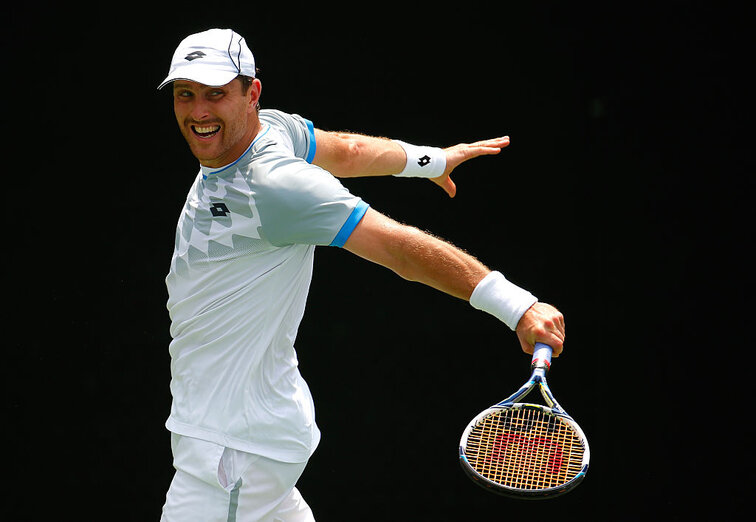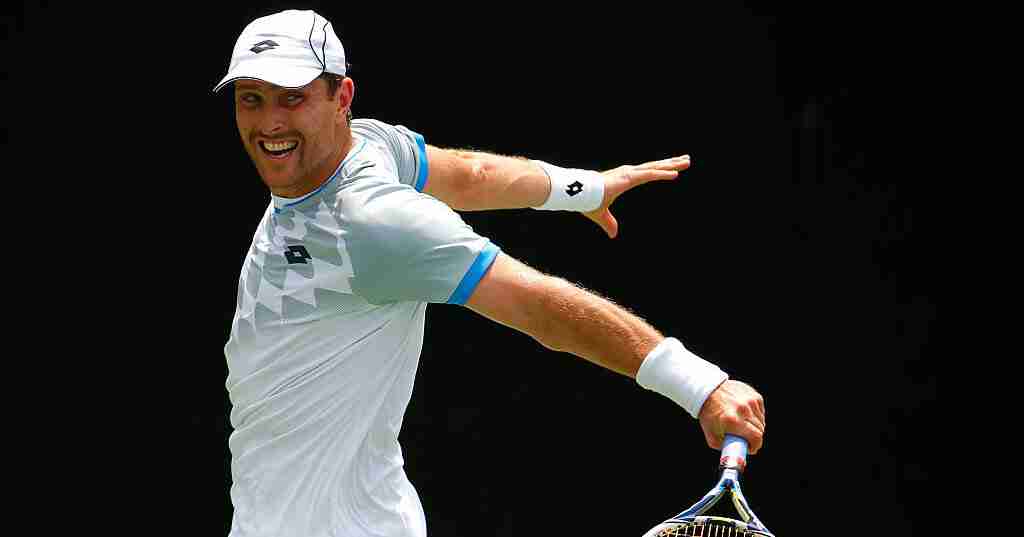In our new article series, former German tennis pro Michel Berrer answers questions on the multi-faceted topic of “mental health”.
by Stefan Bergmann
last edition: January 25, 2023, 3:44 p.m.
© Getty Images
Former DTB player Michael Berrer has fully arrived after his tennis career. The 42-year-old Stuttgarter, who managed to rise to 37th place in the ATP rankings during his active sports career, has set out as a freelancer and has his hands full with his company “MB-A”. In addition to his work as a mental coach for athletes (in addition to tennis professionals also at VfB Stuttgart), the father of two also advises companies such as Porsche. For Berrer, the goal is always to exploit the maximum potential of its customers. tennisnet.com also answered questions from the Davis Cup holder. In a multi-part series of articles, the friendly Baden-Württemberger provides his views and expertise on the topic of “mental health”.
tennisnet: We are really living in very difficult times at the moment: people have to look at money, have to deal with everything that has happened in the world in the last three years (keyword: Corona, war in Ukraine)) . Many have probably also experienced a lot at work or in their private lives. How exactly can sport help you in such a situation? How exactly does sport affect the psyche?
Michael Berrer: On the one hand, sport is of course a very important way to reduce stress. I can let go. Everyone has different methods for this. I have for example. a very clear and structured program that I actually still follow. This means I do a targeted strength training program three times a week. Then I go running twice a week and of course I try to go to the tennis court as often as possible. And I just noticed that easy running is not only very, very important for my cardiovascular system. I can let go. I don’t always need music for that, I also listen to a lot of audiobooks. This way you can continue your training alongside the training. Or I walk and concentrate. It also trains your attention – to yourself and to your surroundings.
Attention and mindfulness exercises are extremely popular at the moment…
Exactly. There are excellent studies by American scientists. The title of their article is “A wandering mind is an unhappy mind.” And that’s exactly it. I also try to control my media consumption in this way, because if I read the newspaper or Google News every day, then I know that in two weeks I will be completely depressed. You think the world is falling apart every time. There are messages like: “Go ahead, fill up”, “There is going to be a power outage” or even “We are going to run out of gas”. Of course, I can’t say if this actually happens. I’ve read a book or two about this and may be somewhat prepared. But at some point I have to live again, I have to focus on the here and now. And I think sport is a very, very important tool and everyone has their own preferences. This could be a walk in the fresh air, a vigorous run, a high-intensity workout, or strength training.
How did you find your right training program?
I discovered a certain mix because I realized I needed strength training. Because it also keeps my entire torso stable. This is how I feel fit and I don’t have any weight problems because of it. Running clears my head. And tennis distracts me and motivates me at the same time. It’s just my biggest passion. This means that when I go to the tennis court, I smile and think it’s cool to chase the ball. And I think that’s why sport is so important, because it simply has a positive effect on our psyche. Because we can reduce stress. Sometimes we may also need to exercise to create a certain level of stress in order to stay balanced, as I am also a strong believer that we need a certain level of tension and stress. But in sports, I can choose it myself.
And how important is nutrition in all of this?
Nutrition is also a very important topic when it comes to mental health. My old coach introduced me to intermittent fasting a few months ago. and it was great for me. So, I really weighed a little less than 96 kilos. I have never gone below 100 kilos as a professional and I always feel full of energy. It’s also a lot of fun to experiment. Of course, it’s also a bit of suffering. I do it in a very rudimentary way. I don’t eat anything after 8:00 p.m. and I don’t eat until 12:00 p.m. the next day. This is my 16:8 interval. It’s super exciting what’s happening inside you. You feel detoxified and full of energy.
Conclusion of this episode: We always need things that are simply good for us. And then we still need a little challenge. Science also says: Sports and exercise are part of maintaining mental balance.
If you have any questions about “mental health in sport”, send them to us at: [email protected]. We will forward your question (anonymously if you wish) to Michael Berrer and publish it here in future issues. Together, we raise awareness of the need for mental health!

